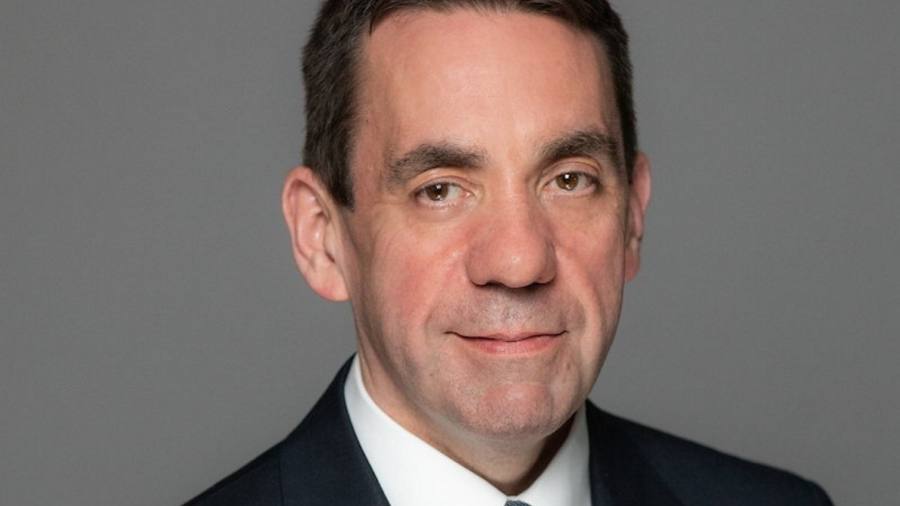
Bank of Ireland’s new chief executive will be paid nearly €1mn, almost twice the level of a controversial pay cap on top brass at Irish banks that were bailed out more than a decade ago.
Myles O’Grady, who was named to lead Ireland’s biggest bank on Monday, will receive the same €960,000 package as his predecessors — Francesca McDonagh, who moved to Credit Suisse in September, and Ritchie Boucher, who was chief executive from 2009-17 — the bank confirmed.
O’Grady, who takes the helm at a transformative time for the industry with the exit of Belgian bank KBC and Ulster Bank from the Irish market, has been awarded the same exemption from the restrictions as his two predecessors, the bank said.
Having quit as finance director last year because of the €500,000 cap on senior executives’ pay, O’Grady will continue to push for the scrapping of remuneration restrictions that were imposed after the Irish banking collapse.
McDonagh had been a vocal opponent of the curbs, which the bank argues put Irish lenders at a competitive disadvantage in Europe.
BoI also believes it should no longer be subject to the pay cap because it returned to private ownership with the sale of the state’s last stake in September, the first of Ireland’s three bailed-out high-street banks to do so.
The state pumped €4.7bn into BoI between 2009 and 2011 in a sector-wide crisis sparked by a reckless mortgage lending spree that ended up crashing the entire Irish economy.
In addition to the pay cap, bonuses and benefits, such as childcare and healthcare, are not allowed.
Boucher, chief executive at the time of the crash, was allowed to keep his pre-crisis package because he was remaining in the same role. That precedent enabled McDonagh and now O’Grady also to be granted exemptions from the finance ministry.
“The remuneration restrictions on Irish banks apply to all colleagues at every level . . . from most junior to most senior. Ireland is alone in Europe in applying these types of restrictions,” the BOI said.
“This means all other companies — both banks and corporates from outside financial services — have a competitive advantage over Irish banks when it comes to the attraction and retention of talent. We believe that Irish banks should be allowed to pay their workers in line with European rules and norms as applied across the eurozone.”
The finance ministry did not immediately respond to a request for comment.
The central bank last month relaxed another crisis-era restriction when it loosened the rules on how much first-time housebuyers could borrow.
John Cronin, analyst at stockbrokers Goodbody said the market would have been concerned if O’Grady’s package had been less than McDonagh’s.
“Investors want stability at the top of Irish banks and the severe remuneration restrictions are not constructive in that respect,” he wrote in a note to clients.
O’Grady, who served as BoI chief financial officer from January 2020 until March 2022 when he left to do the same role at supermarket company Musgrave Group, had been widely tipped for the job. He left Musgrave last month.
BoI chair Patrick Kennedy hailed O’Grady’s “strong record of delivery”.
Diarmaid Sheridan, analyst at stockbrokers Davy, which is owned by BoI, said O’Grady “played an integral role” in developing the bank’s current strategy, which he said had boosted efficiency.
Cronin said O’Grady’s appointment could lead to a “refreshment of strategic and financial targets . . . perhaps as soon as the full-year 2022 results in spring 2023”.